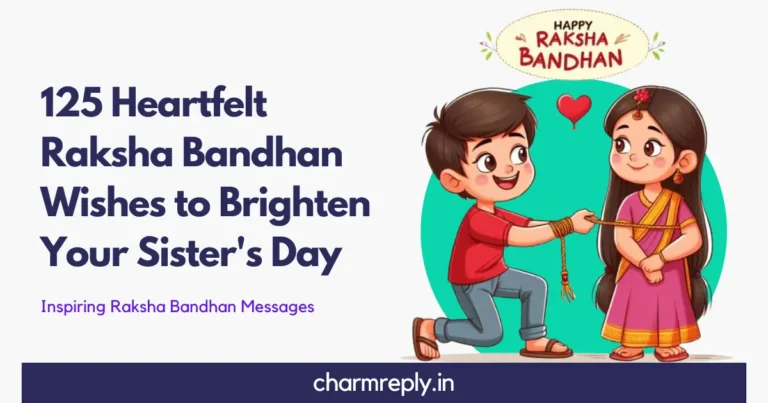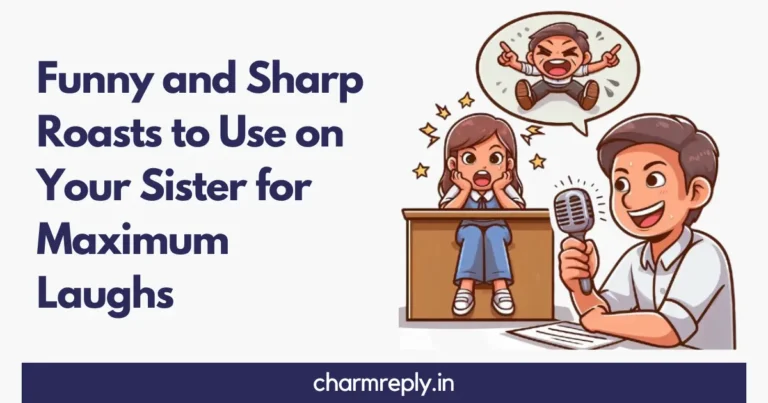How to Say ‘You’re Lying’ Without Starting an Argument: 160 Phrases

You’re sitting at lunch with a coworker, and they share a story that just doesn’t seem to add up. You feel a small voice inside telling you, “That’s not true.” But instead of saying it outright, you pause—because the last thing you want is to create tension or start an argument. Sound familiar?
Here Are 160 Alternatives to “You Are Lying”
This guide will show you practical and respectful ways to address dishonesty without causing conflict. From gentle questions to neutral observations, these phrases help you express yourself while keeping the peace. Experts like Dr. Brené Brown highlight how clear communication is key to building trust in any relationship.
Curious to learn these simple yet effective approaches? Let’s dive in and explore how you can handle tricky situations with confidence and respect.
Direct Phrases to Address Lies
- I’m not sure that’s true.
- That doesn’t sound accurate.
- I’ve heard differently.
- Can you clarify where you got that from?
- I don’t think that’s correct.
- That’s not what I was told.
- I believe that’s a misunderstanding.
- I’m not convinced that’s the case.
- That’s hard to believe.
- I think there’s been some confusion here.
- I’m pretty sure that’s not how it happened.
- That seems a bit off to me.
- I don’t recall it that way.
- I think you might be mistaken.
- That doesn’t match what I know.
- I’m not sure you’ve got all the facts.
- I think you’re misinformed.
- I’ve seen evidence to the contrary.
- I don’t think that adds up.
- I don’t believe that’s the whole story.
- That sounds like a stretch.
- I’m not sure that’s accurate.
- Can you back that up with proof?
- I’m pretty sure you’ve got that wrong.
- I think you might have gotten confused.
- I’m not sure I agree with that.
- I can’t say I’m convinced by that.
- That doesn’t seem to be true.
- I’ve heard something different.
- I’m not sure I believe that.
- That doesn’t align with what I know.
- I don’t think that’s the right information.
- That sounds incorrect to me.
- I’m not sure that’s what happened.
- I believe you might be mistaken about that.
Non-Confrontational Phrases
- Hmm, I thought it was different.
- I’ve heard it explained a different way.
- That doesn’t quite sound right to me.
- I thought it was something else, but I might be wrong.
- I don’t know if that’s entirely accurate.
- That’s an interesting take, but I think there’s more to it.
- I’m not sure that’s how it went down.
- I’ve come across some different information.
- I thought there was another explanation.
- I don’t think that’s what I was told.
- I’m not sure that matches what I know.
- I’m curious where you heard that from.
- That’s not exactly what I remember, but maybe I missed something.
- I don’t know if that’s true, but I’ll check it out.
- That’s an interesting idea. I wonder if there’s more to it.
- I’ve heard something different, but I’m happy to learn more.
- That’s not quite what I thought, but I’ll keep an open mind.
- I don’t know if that’s entirely right, but let’s talk it through.
- That’s not how I recall it, but it’s possible I’m wrong.
- That doesn’t seem quite right, but I’d love to hear more.
- I’m not sure that adds up, but I’m open to hearing more.
- I thought I heard it differently, but I could be mistaken.
- That doesn’t align with what I know, but I might be wrong.
- I don’t know if that’s accurate, but let’s figure it out.
- I thought there was another angle to it, but maybe I’m mistaken.
- I don’t think that’s correct, but I’d like to understand your side.
- I’m not sure if that’s the case, but I’m happy to listen.
- I thought it was another way, but I’m open to being corrected.
- That’s not exactly how I remember, but I’ll check it.
- I’m not sure I agree, but I respect your perspective.
Using Humor to Address Lies
- Are you sure? I think I heard that on a sitcom once!
- If that’s true, I think we might need a new script.
- I’m going to need to see your proof of that one!
- Wow, that’s quite a story! You should write a book.
- That’s a good one! Did you learn that from a conspiracy theory?
- Are you sure? Because that’s definitely not what the internet says.
- That sounds like something straight out of a reality TV show.
- I’ll believe that when I see it in a documentary.
- Is that your version of the truth, or did you make it up on the spot?
- Wait, are we on a hidden camera show right now?
- You’ve got quite an imagination! Is this fiction or fact?
- That’s a pretty wild story, but I’m not buying it… yet!
- If that were true, I’d expect a follow-up press release.
- Is this the new trending rumor, or am I missing something?
- If that’s true, I think I need to change my entire worldview!
- I’m calling it: you’re auditioning for a role in a spy movie.
- So, are we telling tall tales today or is this the real story?
- You must be related to a famous storyteller, huh?
- That’s an epic story, but I think you’re pulling my leg.
- If that’s how it happened, I’ll need to see some evidence… like a TikTok video.
- I’ve heard better lies from my dog, and he’s a terrible storyteller.
- Well, that’s one way to look at it, but I’m not buying the plotline.
- Let me get the popcorn, this is a good one!
- Whoa, that’s a new one! Should I add it to my list of impossible things?
- Are we in a movie, or is this the truth?
- I think I saw that in a Netflix documentary… or was it a thriller?
- I’m not sure if I should be laughing or questioning reality.
- Is this a secret episode of “Liar’s Club”?
- Who wrote that script? It’s definitely a work of fiction!
- That’s a good one, but I think you’re pulling a fast one on me.
- If that’s the truth, I must be living in a parallel universe!
Empathetic Responses
- I understand where you’re coming from, but I don’t think that’s accurate.
- I can see why you might think that, but I’m not sure that’s right.
- I hear you, but I think there’s been some confusion.
- I totally get why you’d say that, but I don’t think that’s how it happened.
- I understand how that could feel true, but the facts seem a bit different.
- I can see how you might think that, but I’m not convinced it’s correct.
- I hear you, but I think we might need to look at this from a different angle.
- I get that you might feel that way, but I’ve come across some other information.
- I understand, but I think there’s a misunderstanding here.
- I know that’s what you believe, but I think there might be another side to this.
- I can tell you’re passionate about this, but I think the facts don’t line up.
- I know you think this is true, but I’ve heard it differently.
- I understand you’re trying to make sense of things, but that doesn’t seem to add up.
- I can appreciate your point of view, but I think there’s some misinformation.
- I see how that could seem right, but I don’t think that’s the full picture.
- I understand that’s your perspective, but I think we’re missing a detail.
- I can understand how you’d say that, but I believe there’s another explanation.
- I get that this might be what you heard, but I think there’s more to the story.
- I understand why you’d feel that way, but I don’t think that’s accurate.
- I can relate to where you’re coming from, but I think we’re not seeing eye to eye on this.
- I know you’re trying to explain it, but I think there might be some confusion.
- I get how that makes sense to you, but I’ve heard otherwise.
- I understand that’s how it looks, but I think we’re overlooking something important.
- I can see how you’d think that, but I believe there’s a different truth here.
- I understand your feelings, but I’m not sure that’s what really happened.
- I know this might be hard to hear, but I don’t think that’s true.
- I hear where you’re coming from, but I think there’s a misunderstanding.
- I know that’s your experience, but I think the facts are a little different.
- I understand this is what you believe, but I’m not sure it’s entirely right.
- I can see that you’re trying to make sense of things, but I don’t think that’s the truth.
- I hear your version, but I think we need to look at this from a different perspective.
- I understand that’s how you see it, but I think the situation is different.
- I can appreciate where you’re coming from, but I’m not sure that’s entirely accurate.
- I get that you might think that, but I believe there’s more to it than that.
- I know this is important to you, but I think we might need to reassess what happened.
Indirect Approaches to Address Lies
- That’s an interesting point of view, but I’m not sure it’s the full story.
- I’ve heard some different information about that.
- I’ve come across a few things that might suggest otherwise.
- I’m curious about where you got that idea from.
- There might be some details that are missing here.
- I’ve seen things presented in a different light.
- It could be that we’re both seeing different sides of the situation.
- I’ve read about it from a different angle.
- It’s possible that things happened differently than you think.
- I wonder if we’re talking about the same event.
- I think it might be worth checking the facts again.
- Maybe there’s been a misunderstanding along the way.
- It might be helpful to double-check that information.
- I’m not sure if that’s the most accurate version of what happened.
- It’s interesting that you say that, but I’ve heard something else.
- I’m not sure if that aligns with what I’ve read elsewhere.
- There might be a few other things to consider here.
- I’ve encountered some conflicting information on that.
- It might be useful to verify that before jumping to conclusions.
- There’s another side to the story that I think we should explore.
- I think there’s some missing context here.
- I’m not sure if that’s the full picture, maybe we should dig deeper.
- There are a few other sources that might have a different take on it.
- I think it’s always good to cross-check things like this.
- Maybe the details were misremembered or misunderstood.
- I’ve heard a few things that might paint a different picture.
- Maybe we’re both hearing different things or interpreting them differently.
Final Thought
Calling out a lie doesn’t have to lead to an argument. With the right words, tone, and body language, you can address the falsehood and maintain a peaceful conversation. By using the phrases and techniques outlined above, you can handle even the trickiest situations with grace and respect.






